Filter by
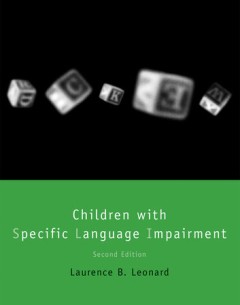
Children with Specific Language Impairment (Second Edition)
"A Bradford book.""The first edition of this work established Children with Specific Language Impairment as the landmark reference on this condition, considering not only the disorder's history, possible origins, and treatment but also what SLI might tell us about language organization and development in general. This second edition offers a complete update of the earlier volume. Much of the se…
- Edition
- Second edition.
- ISBN/ISSN
- 9780262324021
- Collation
- 1 online resource (480 pages) :illustrations.
- Series Title
- -
- Call Number
- -
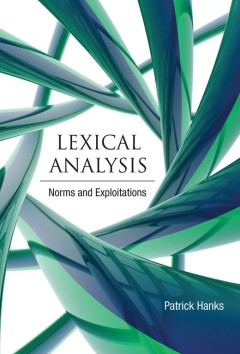
Lexical analysis :norms and exploitations
This study offers a wide-ranging empirical investigation of word use and meaning in language. It fills the need for a lexically based, corpus-driven theoretical approach that will help people understand how words go together in collocational patterns and constructions to make meanings. Such an approach is now possible, the book argues, because of the availability of new forms of evidence (corpo…
- Edition
- -
- ISBN/ISSN
- 9780262312851
- Collation
- 1 online resource
- Series Title
- -
- Call Number
- -
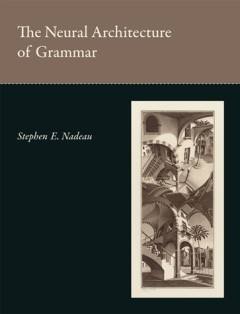
The neural architecture of grammar
"A comprehensive, neurally based theory of language function that draws on principles of neuroanatomy, cognitive psychology, cognitive neuropsychology, psycholinguistics, and parallel distributed processing."--Provided by publisher.OCLC-licensed vendor bibliographic record.
- Edition
- -
- ISBN/ISSN
- 9780262301619
- Collation
- 1 online resource (xiii, 204 pages) :illustrations
- Series Title
- -
- Call Number
- -
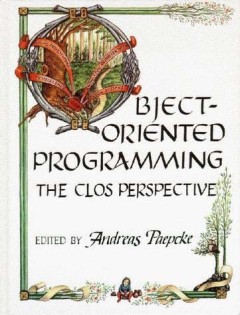
Object-oriented programming :the CLOS perspective
To date, books on object-oriented programming have focused either on the methodology of the object-oriented paradigm or on teaching the details of a particular programming language. This collection takes a different approach, examining one object-oriented programming language - the Common-Lisp Object System (CLOS) - as a modern programming tool. The fourteen contributions examine CLOS from a va…
- Edition
- -
- ISBN/ISSN
- 9780262256759
- Collation
- 1 online resource (viii, 352 pages) :illustrations
- Series Title
- -
- Call Number
- -
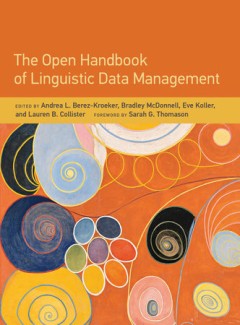
The open handbook of linguistic data management
A guide to principles and methods for the management, archiving, sharing, and citing of linguistic research data, especially digital data.Doing language science depends on collecting, transcribing, annotating, analyzing, storing, and sharing linguistic research data. This volume offers a guide to linguistic data management, engaging with current trends toward the transformation of linguistics i…
- Edition
- -
- ISBN/ISSN
- 9780262362177
- Collation
- 1 online resource.
- Series Title
- -
- Call Number
- -
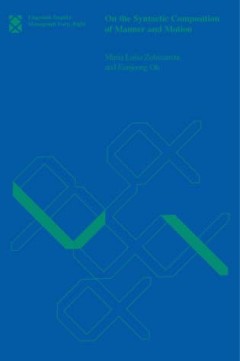
On the syntactic composition of manner and motion
Unlike many books and articles that discuss the relation between constructional meaning and the lexicon, 'On the Syntactice Composition of Manner and Motion' examines one phenomenon in detail: the articulation of manner and motion, in three distinct language families - Germanic, Korean, and Romance.OCLC-licensed vendor bibliographic record.
- Edition
- -
- ISBN/ISSN
- 9780262286657
- Collation
- 1 online resource (viii, 228 pages) :illustrations.
- Series Title
- -
- Call Number
- -
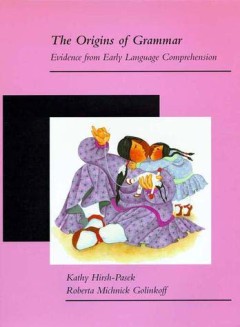
The origins of grammar :evidence from early language comprehension
AnnotationOCLC-licensed vendor bibliographic record.
- Edition
- -
- ISBN/ISSN
- 0585331480
- Collation
- 1 online resource (x, 230 pages) :illustrations.
- Series Title
- -
- Call Number
- -
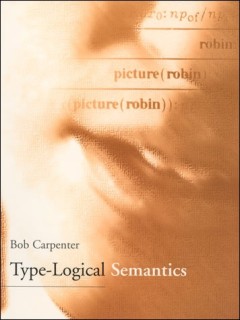
Type-Logical Semantics
A Bradford book."OCLC-licensed vendor bibliographic record.
- Edition
- -
- ISBN/ISSN
- 9780262269902
- Collation
- 1 online resource (xxi, 575 pages).
- Series Title
- -
- Call Number
- -
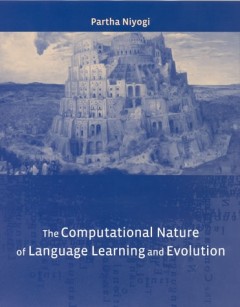
The Computational Nature of Language Learning and Evolution
The introduction of a mathematical and computational framework within which to analyze the interplay between language learning and language evolution.OCLC-licensed vendor bibliographic record.
- Edition
- -
- ISBN/ISSN
- 9780262280686
- Collation
- 1 online resource (xviii, 482 pages) :illustrations.
- Series Title
- -
- Call Number
- -
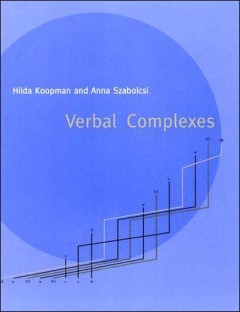
Verbal complexes
In this book Hilda Koopman and Anna Szabolcsi propose a unified analysis of restructuring constructions in Hungarian, Dutch, and German that involves only overt phrasal movement and derives variation from the varying sizes of pied piping constituents.Restructuring verbs in Hungarian exhibit three patterns: the will begin up-climb and the up will begin climb orders common in Dutch and the up-cli…
- Edition
- -
- ISBN/ISSN
- 9780262277433
- Collation
- 1 online resource (xii, 245 pages) :illustrations.
- Series Title
- -
- Call Number
- -
 Computer Science, Information & General Works
Computer Science, Information & General Works  Philosophy & Psychology
Philosophy & Psychology  Religion
Religion  Social Sciences
Social Sciences  Language
Language  Pure Science
Pure Science  Applied Sciences
Applied Sciences  Art & Recreation
Art & Recreation  Literature
Literature  History & Geography
History & Geography